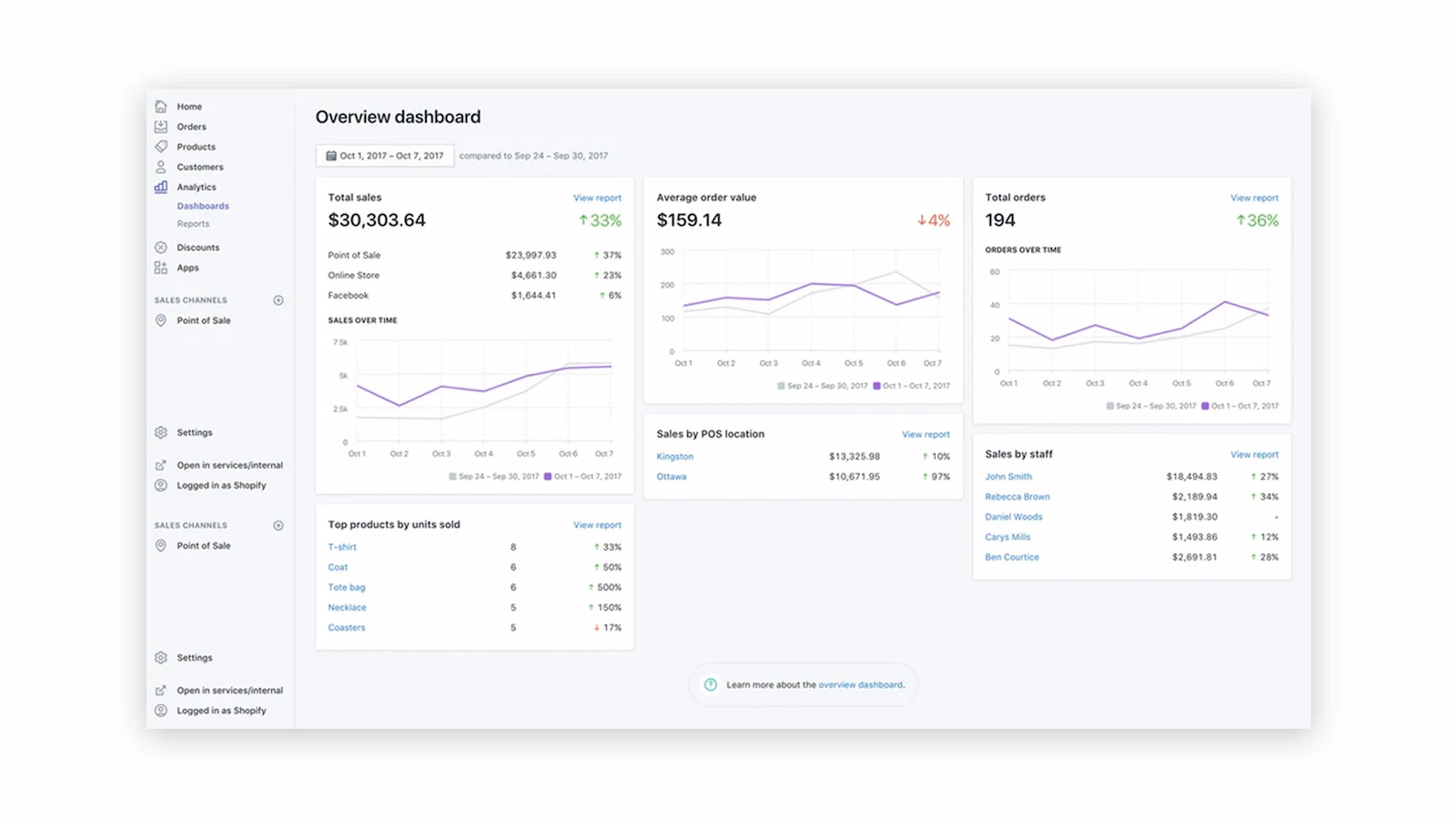For many businesses selling products online, a Shopify website seems like the obvious choice. And it’s easy to see why.
- Shopify is one of the most popular e-commerce platforms in the world, with over 1.75 million active users.
- Shopify powers over 10% of all e-commerce sales in the United States.
- Shopify merchants generated over $175 billion in sales in 2021.
- Shopify is used by businesses in over 175 countries.
So, Shopify is the most popular platform to sell products on the digital storefront. With stats like these, it’s hard to argue against Shopify’s prominence in the digital storefront arena. But, with up-and-coming competitors such as Squarespace and Oracle Netsuite, there are still a lot of options to choose from.
In a landscape filled with competitors like Woocommerce, Wix, WordPress, and other website builders, is a Shopify website truly the holy grail, or does it come with its fair share of complexities?
Our digital team at M Agency has taken an in-depth look at Shopify, weighing its pros and cons from various angles to provide you with an advanced understanding of this powerful e-commerce solution.
What Is Shopify?
Shopify is an e-commerce powerhouse, designed primarily for businesses looking to sell their products online. Think of it as your online store where people can buy your products digitally versus in person.

Shopify Pros and Cons from Our Digital Team’s Perspective
The pros of using Shopify:
- Everything’s Built-In: Unlike some platforms, Shopify comes pre-loaded with everything you need for e-commerce website success. No need to scour the web for plugins; the Shopify app store has many options to choose from.
- Inventory Tracking and Orders: Shopify’s intuitive dashboard makes inventory management, orders, and processing transaction fees and Shopify payments a breeze for e-commerce stores.
- Mobile Responsiveness: Shopify themes are designed to be mobile-responsive, ensuring a seamless shopping experience on all devices. This is a crucial element in modern web design.
- E-commerce Focus: Shopify’s platform is built specifically for e-commerce businesses, which means businesses selling online products can work with features and elements tailored just for online shopping.
- User-Friendly Checkout: Shopify offers a user-friendly, drag-and-drop editor that simplifies the process of building and customizing your storefront, making it ideal for beginners.
- Abandoned Cart Recovery: For e-commerce businesses, this is a game-changer. Shopify’s automation tools can help recover potentially lost sales by targeting customers who abandoned their carts.
- SEO Integration: Shopify is equipped with built-in search engine optimization features, helping you climb the rankings and drive organic traffic to your e-commerce site.
- Email Marketing: Email marketing campaigns can be effortlessly integrated to engage Shopify users and enhance the customer experience.
- Social Media Integration: Shopify has a great selection of marketing tools that can easily integrate with social media platforms, allowing business owners to expand their online business presence.
- Shopify Plus: There are Shopify plans for both small businesses and larger e-commerce operations, providing advanced features and support for businesses with big growth plans.
And now the cons of using Shopify:
- Not Content-Heavy Friendly: If your website is all about content and doesn’t revolve around selling products, Shopify might not be your best bet.
- Limited Flexibility: While Shopify has plenty of functionality right off the bat, it can be less flexible when it comes to customization and building plugins.
- Theme Limitations: While themes are customizable since Shopify primarily works from templates, there can be limitations in achieving the exact look and feel a business desires, especially if the design concept is highly unique. Shopify has a library of free themes and paid options.
Garth, Senior Web Developer at M, sums it up nicely:

So, there you have it — Shopify shines when it comes to e-commerce, but it’s not the chameleon that can adapt to any web scenario. When choosing the best e-commerce platform, it’s vital to weigh the pros and cons carefully, keeping in mind factors such as pricing, payment options, customer support, and scalability. Ultimately, Shopify’s ease of use and advanced e-commerce features make it a worthy contender, but it’s essential to evaluate it in the context of your business.
As with any digital tool, the key is finding the right fit for your unique business needs and goals.
Whether you’re all about selling online products or sharing content, M Agency’s digital team is here to help you navigate the ever-evolving digital landscape.
